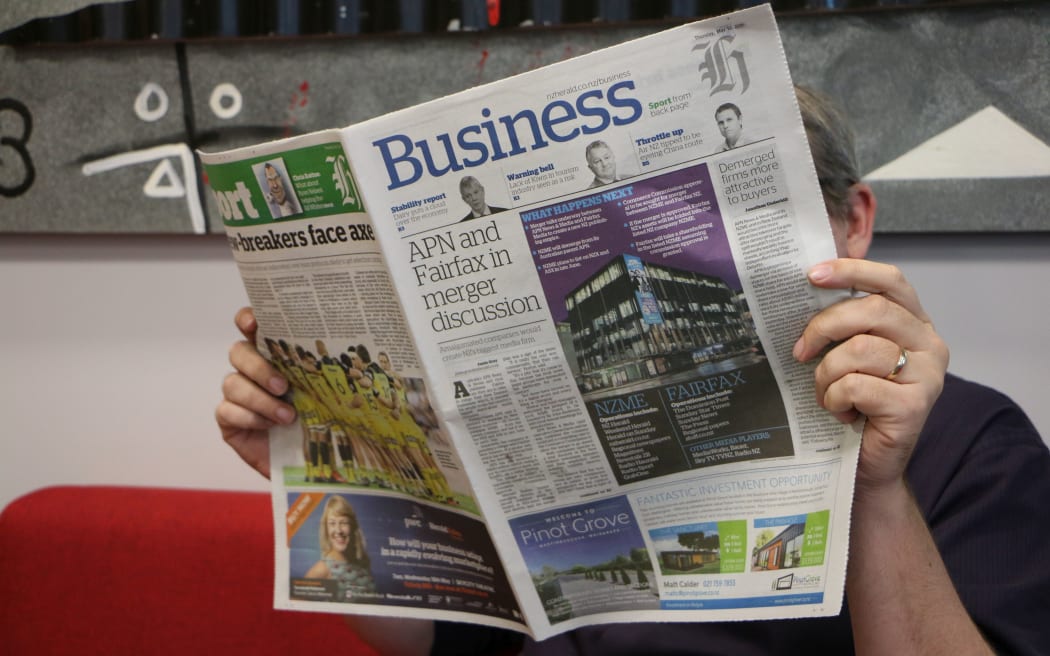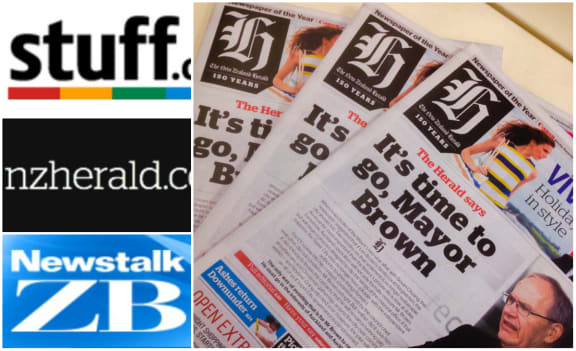OPINION: Media watchers are concerned about the proposed Fairfax-NZME merger, but will consumers even notice?

Photo: RNZ / Dru Faulkner
Grave concern mixed with resigned pessimism seems to be the default position for most media watchers over the proposed Fairfax-NZME merger. The concentration of more media in fewer hands is clearly a bad thing for democracy, and for the plurality of voices and opinions desirable in a free society.
For the staff at both companies - and not just the journalists - there will be more pain, on top of what already feels like an eternal cycle of restructuring and redundancy.
As a culture, we will undoubtedly be worse off.
But the more interesting question, perhaps, is what exactly the average consumer of local media will notice if the Commerce Commission allows such a deal (or a version of it) to proceed.
Assuming the new Fairfax-NZME entity retained some core brand distinctions, most New Zealanders will still see the big Fairfax metropolitan papers, including the flagship Dominion Post and Press, and its weekend broadsheet the Sunday Star-Times.
NZME's radio network - including the dominant NewsTalk ZB - and its daily and weekend Herald will still be heard in taxis and read in cafes.
The kinds of changes that a merger will almost certainly cause - duplication of content across different markets, fewer senior reporters and less serious journalism, declining quality control - will be nothing new.
Nor will the tangible effects of the mass migration of advertising away from print to digital be a shock. Both companies' newsrooms are vastly depleted already, and both have struggled to rationalise their financial models in the age of the almighty algorithms of Facebook and Google.

Photo: SCREENSHOTS, RNZ
In that sense, all we are witnessing in New Zealand is the inevitable overflow of the same phenomena in Australia, where the Fairfax and NZME parent companies reside.
The former is a basket case that has never recovered from the double assault on its complacent business model by the Murdoch and Packer empires, with the Melbourne Age and Sydney Morning Herald heading for digital-only weekday editions sooner rather than later; the latter (APN) is intent on divesting its regional papers and focusing on radio and outdoor advertising.
The one area a merger might have a more immediately noticeable effect is online. Freed by co-ownership from the fear of blinking first, the Stuff platform might follow its logical trajectory and abandon all pretence of being a news outlet, allowing the Herald to carve out a sizeable niche behind some kind of pay wall.
Whether enough people would pay for it is another matter, given how far expectations in general have been lowered. Again, the trend has been evident for a long time - clickbait over harder content, eyeballs over deeper engagement - largely free, and arguably over-valued at that.
There will be a great deal of big talk from the board rooms and executive offices to justify this merger - cross-platform converged, digital news-hub content creation and delivery across multiple channels, and all the rest of it - but in the end this is being driven by spreadsheets, not grand visions.
If we want to know where this is heading, at least we have the recent past as a guide.
* Finlay Macdonald was editor of the New Zealand Listener magazine from 1998 to 2003, commissioning editor at Penguin New Zealand from 2003 to 2005, and a weekly columnist for the Sunday Star-Times from 2003 to 2011.

